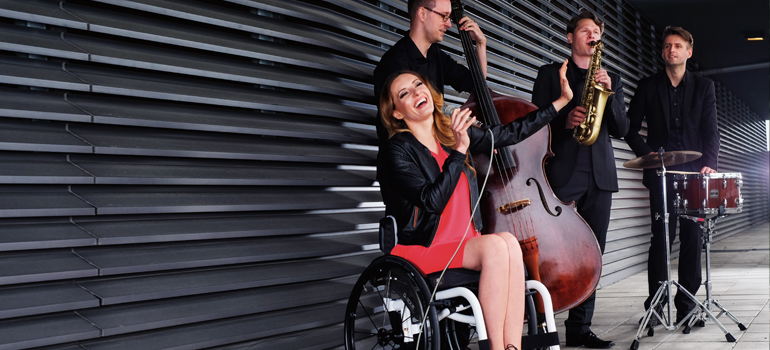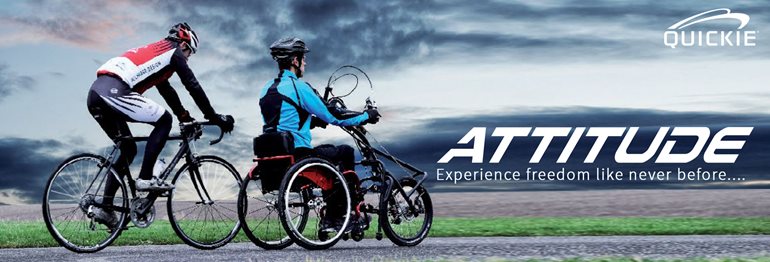Share:
Take it offline!
This Education in Motion resource is also available as a printable PDF.
Download PDF
Maintaining a healthy and active lifestyle can be a challenging task, especially for people with disabilities. There are so many physical and mental benefits that you can gain from maintaining a healthy and active lifestyle. Becoming more active and involved in social group events will positively impact your mental health and improve your social wellbeing. Joining a social group might be an intimidating thought but there are so many activities you can become involved in with people who have similar interests!
Choosing the right activity for you!
Adapted sports have become increasingly popular for people with disabilities in Australia and worldwide. Some popular adapted sports in Australia include basketball, rugby, AFL, tennis and cycling and have become more accessible and available. Several different clubs and organizations are achieving widespread success across the country, raising funds for adapted sports programs and other forms of active recreation.
However, getting active doesn’t necessarily mean heading out to the sports field. Domestic and international travel is becoming a more accessible activity for people with disabilities. As airlines continue to refine their approach to adapted travel, it’s hoped that accessible tourism will become a more popular activity and improve the ease of travelling.
While organised hobbies and sports are a great way to get active, it’s important to remember that your local town or city likely offers a huge variety of activities. Research some activities that are offered near you and see if you can find one that appeals to your interests. If you’re looking for other unique possibilities, we have some fun suggestions for you to think about.
Discover yourself in music
It sounds clichéd and exaggerated, but listening to music can make a big change in your life, increasing your clarity and focus, magnifying your self-esteem and help you relax. Listening to music is also a great way to relax and disconnect from the frantic hustle and bustle of our everyday lives. Dancing and moving along to the music provides another source of enjoyment and fun.

Awaken your inner gamer with ‘Wii Therapy’
Playing videos games can be a great way to socialise with other people, ease into rehabilitation and challenge your cognitive abilities. The Nintendo Wii video console is particularly effective because it can be adapted to assist people with disabilities, using handheld sensors to detect your movement. By using accessories like the Wii Balance Board, you can play games that strengthen your visual and manual coordination, improve your reflexes, develop your balance and ease joint stiffness.
There are a wide variety of game titles to choose from which means that Wii gaming is accessible to people, regardless of their disability. To reap the full benefits of ‘Wii Therapy’, it’s a good idea to contact a community health service to see if they’re open to the idea of hosting a session. Any active gaming should only be performed while a trained physiotherapist is on hand to supervise.
Gardening and relaxing in nature
If you’re looking to ease mental stress or physical tension, gardening can be a tremendously therapeutic activity. Psychologically, gardening is believed to be a fantastic form of mental relaxation, promoting an overall feeling of wellbeing.
Take the plunge and start swimming
Whether it’s in the pool or the ocean, swimming and aquatic activities have long been associated with holistic health and are one of the most popular activities for people with disabilities.
There are a large number of different activities that you can undertake including social activities like swimming, therapeutic hydrotherapy and aquatic sports which are great fun and can help improve your motor functions, muscle tone and general cardiovascular health.
Swimming is especially valuable for people with limited mobility as aquatic activities cause significantly less strain on muscles and joints. For people with neurological disabilities, caused by spinal cord injuries, head trauma, cerebrovascular accidents, degenerative diseases of the neurological system, spinal atrophies or spina bifida, swimming is an excellent way to ease into rehabilitation.

Leading an active lifestyle is important on many levels, there are positive physical and mental benefits of regular activity, whether it’s playing games at home or taking the weekend off for an excursion to town.
Regularly committing to an activity that involves some form of exercise will have huge impacts on your health and fitness, increasing fat loss and muscle tone, boosting your resting metabolism, and improving your sleep quality. From a psychological point-of-view, recreational activities are an excellent form of relaxation and cognitive exercise, helping you maintain concentration and improve your memory.
Beginning a new activity can be an intimidating prospect and taking the time to research and decide on the right activities can make the process a lot smoother and easier. If you have questions about specific activities or you can’t decide what’s right for you, don’t hesitate to reach out to local support networks, whether it’s sporting associations, health centres or a national disability assistance foundation. There are so many activities to choose from; find one that you want to do today and give it a go!